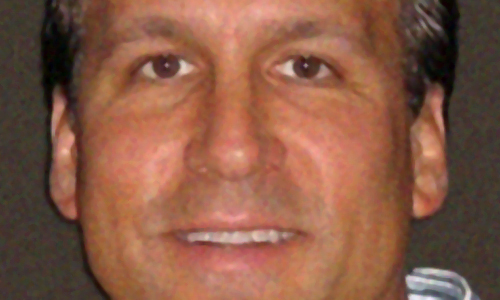by Jessica Carreras

Plastic Surgeon Doctor Steven Morris
Dr. Steven Morris wants to make people happier with their bodies – and while he's at it, erase the stigma of plastic surgery. The doctor, who has offices in Birmingham and Midland, recently chatted with Between The Lines about how to choose a plastic surgeon, reaching out to the LGBT community and why he loves what he does – stigma or not.
Why did you decide to become a plastic surgeon?
It was interesting because I – in medical school, you are exposed to a variety of different lectures from different specialties and during the surgery rotation, everybody comes in – the heart surgeons, the neurosurgeons – all these people. When I saw plastic surgery, it seemed very interesting becase you help all age ranges of people. Initially, like most plastic surgeons, their practice starts off as mainly reconstructive, which is a really gratifying thing. But as time goes on, a lot of us tend to gravitate toward the cosmetic stuff. That's sort of what my practice has done now. Except for some breast reconstruction, it's pretty much 100 percent cosmetic. It's very gratifying to be able to help people feel better about themselves and gain more self confidence.
I understand that you have worked with transgender patients before. How did you get involved in that?
Yeah, some, but it's not a big part of my practice. The patients just contacted me. I'm not sure how that happened and it's certainly not the focus of our practice but we just happened to have some transgender patients and then interestingly, it's kind of funny but I don't know if you've ever watched "Dr. 90210" but there's a guy by the name of Gary Alter that does a lot of transgender stuff and actually was a urologist that then trained with me at Mayo Clinic at the same time in plastic surgery … so he does a tremendous amount of transgender stuff. A lot of things, especially the more complicated things, I refer to him. And it's great because he's a personal friend and gives great attention to the patients and takes care of them.
The reason I ask is because I heard that you're trying to reach out to the LGBT community more. Why are you doing that?
I think that sometimes they're probably an underserved group of people. I have relatives who are gay and lesbian so I sort of have a little different perspective on things than an individual who might not have such an intimate knowledge or relatives that are in that situation. So I see that sometimes people don't often reach out to them in the way they should. We've found that interestingly, they tend to be some of our most loyal patients and they tend to be, in general, very health-conscious, intelligent and very – they're a great group of patients to take care of because they follow all the post-operative instructions that they need to do and pre-operatively as well. They're just a good group of people to work with and to help.
One of the big issues in the gay community is finding a doctor they're comfortable being out to, who is gay-friendly. How do you make your LGBT patients feel at ease?
We're totally non-judgmental in the way that we deal with folks. We don't overtly discuss things unless the patients do because just like anything – whether it's a matter of religion, sexual preference, political viewpoint – everybody has their own perspective on things and so to me, it's really not an issue. But it's funny because I do have a lot of patients that bring it up and then I think they become a little more comfortable because then I can relate personal stories of family members and whatnot. I think it helps them feel more comfortable.
It's important to find a plastic surgeon that they're comfortable with, but how does someone make sure their surgeon is qualified?
Unfortunately, a lot of the major marketers in the Detroit market are really not properly qualified plastic surgeons. It's something that – we see a lot of people for corrective procedures, not only surgical but also Botox and fillers and stuff, so it's an important message to get out there. The public at large knows it's important for a doctor to be board certified, whatever their specialty is. So quite often, when somebody is calling a plastic surgeon's office, they'll ask if the doctor is board certified and they'll get the answer 'yes.' Well, there's really only one board that is actually one board that is approved to certify real plastic surgeons – the face, the body and all aspects – and that's called the American Board of Plastic Surgery. Because of that, there have been a lot of pseudo-boards that have popped up. They might have to take a little written test or sometimes even just pay to get the certification, but it doesn't have the rigorous standards that the American Board of Plastic Surgery does.
It's becoming more common for men to seek our plastic surgery, and with gay men, there's often a stereotype that they care more about their appearance. Do you find that many of your male clients are gay?
My wife – who does a lot of the Botox and injections, which is often a stepping stone to other procedures – she'd say about 25 percent are gay. Again, we don't actively question people so these are just men she knows personally from conversations.
What would you say your male clients primarily focus on?
Most of the men – a large percentage of them kind of baby step into things by doing their Botox or fillers or something like that. Because whether they're gay or straight, a lot of men still are a little funny about going to a cosmetic surgeon, thinking that people are going to think they're vain or something like that. They tend to have a little more trepidation coming in than the women do. That would be one thing but the other thing is that with the economy and everything, a lot of men are either having to change jobs or getting back into the work force so a lot of men are doing facial rejuvenation procedures such as eyelids or laser resurfacing their face. And actually, we have a lot of men who have had massive weight loss and come in for tummy tucks or things like that.
It's interesting that you mentioned the stigma for men who come in for plastic surgery. You don't find that's the case with women?
It's still the case with women, but to a much, much lesser extent. A lot of guys are more worried about what their friends are going to think about what they're doing. It's a stereotypical thing that shouldn't exist, but it does. That being said, each year that goes by, the percentage of male patients increases. It is becoming a more acceptable thing for a man to do, whether he be straight or gay. It doesn't really matter.
It sounds like you help a lot of people with a variety of issues, but what's the best part of your job? Why do you love what you do?
If you go to our Web site – and this is just a fraction of the ones we received – but there are just tons and tons of thank you cards that we get from patients. To me, that's the most satisfying thing. It's helping somebody feel better about themselves or feel more self confident. It's just a really rewarding experience to be able to help somebody get rid of an issue they've had all their lives or that has developed over time. Helping someone in a positive way, it's a really gratifying part of what we do.
To learn more about Dr. Morris, visit http://www.michiganmakeover.com or call his Birmingham office at 248-593-5533 or his Midland office at 989-832-5055.










